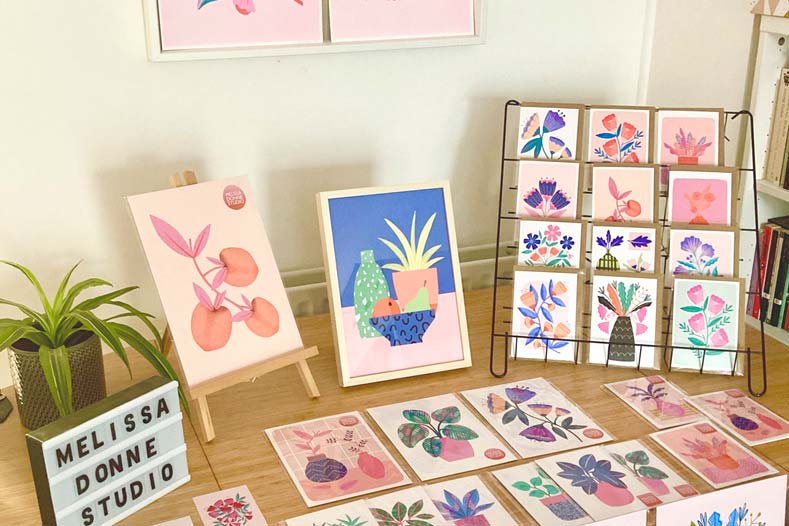Online Markets and how virtual communities have rallied during lockdown to support and champion small creative businesses.
Posted on 23rd September 2020
At the very start of lockdown, as the Prime Minister announced the beginning of a wave of restrictions limiting movement and the temporary closure of numerous businesses large and small, I wrote a blog post outlining how the Corona Virus could impact small businesses like my own, and I identified some areas where attention could be paid to improve the chances of survival of our creative brands and also for many of us, our livelihoods.
I want to focus here on how small businesses have adapted and embraced the ‘new normal’ with the changes lockdown has brought (and the softening of restrictions more recently alongside the threat of a further widespread lockdown).
One area I identified as essential to improving chances of small business survival during this time was the harnessing of social media channels and how using them effectively would connect small business owners with one another. Even at the start of lockdown, it was apparent that social media sites including Instagram and Facebook would continue to serve to provide a lifeline to many creatives, promoting their work for the purposes of selling online, either through their own stores or other online marketplaces. Perhaps the crucial difference was the burgeoning online communities from these platforms coming together so that avenues of support could grow.

I certainly found comfort in connecting with other makers when I was unable to see my family and friends in the usual ways, and friendships which began in the early stages of lockdown have gone from strength to strength beyond that. There was a real mood of support – from sharing each others work to promoting the Shop Small hashtag. My own sales and those of many of my peers started to grow to a level I hadn’t known before lockdown. The fears I had about the death of my business at the start of lockdown became unfounded (my main concern was the cancellation of all my in-person markets from the end of March onwards). People were genuinely invested in the #shopsmall movement and shopping online with messages of support and solidarity. Alongside this, a growing movement was taking shape and its inception is arguably directly linked to Covid and the lockdown period.
The Online Market was a fresh, new concept, enthusiastically embraced by market hosts and makers alike. It was never intended to replace the in-person markets of old, indeed it was a positive alternative which promised to connect makers with customers, promote their work and offer a space (sometimes on the host’s grid and stories or via a dedicated web page) to share work and initiate sales whilst increasing exposure.
Although Online Markets have differed in their approaches, they often have many things in common – careful curation to ensure a wide variety of products featured, promotion of makers by sharing work, videos of ‘at-home market stalls’ set up on dining-room tables, and links to their stores plus instructions how to shop directly with them to make a purchase. The relationship is mutually beneficial – paying a small fee to the hosts for promotion and marketing and in return the maker would benefit from the host’s expertise and experience, helping to maximise sales. There are now online fairs on a weekly basis, bringing together makers and customers from all over the country (and world!) who may not have found each other otherwise.

One of my favourite markets to take part in has been Bristol Market due to Geraldine’s commitment to her makers and her strong support for their craft and business – always willing to share work and give the maker much needed space on her social media channels. The build up to an online market is almost as important as the market is itself – creating a buzz and interest in a maker and their products in advance is a very key marketing strategy. Online markets should definitely be taken seriously as a business opportunity but the fun factor shouldn’t be ignored – taking part, talking to customers, being in groups leading up to the event to share stories, experience and tips for taking part is priceless.
Online markets will; continue to hold weight, even with the reopening of many in-person markets as they offer an alternative to customers who want to shop in the comfort of their own home, may not want to venture into busy shopping areas and want to continue to support the ‘Shop Small’ movement more generally. They sit wonderfully alongside in-person markets whilst they are still happening and taking part is a very positive experience.

So keep shopping small, support makers, share their work or just comment on a social media post – no comment goes unread and no support is ignored. The connections we make with each other during this time are truly valuable and what the pandemic threatened to take from small businesses has been well challenged by the strength and resolve of the maker community during this time.

